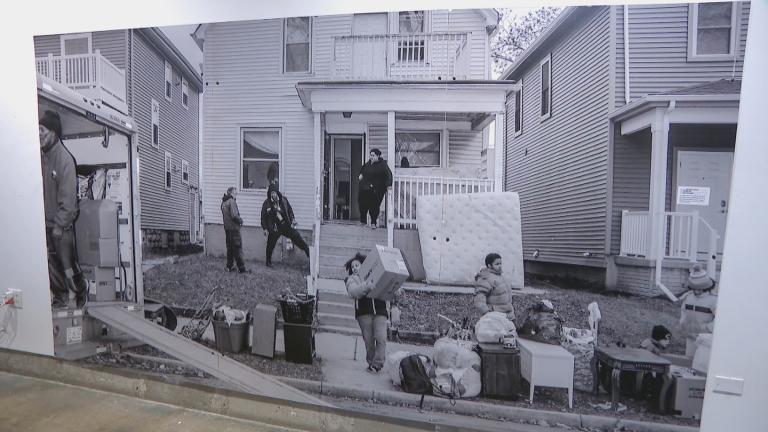 (WTTW News)
(WTTW News)
Aldermen on Tuesday advanced a scaled-back effort to test whether Chicago’s affordable housing crisis could be eased by permitting basement, attic and coach house dwellings in five areas of the city.
A measure to allow the additional units to be built in most of the city stalled this summer amid opposition from aldermen concerned they would not be able to stop unwanted units from being built in their wards.
Ald. Pat Dowell (3rd Ward) said the original proposal was too broad.
“Chicago is not a one-size-fits-all kind of town,” Dowell said.
That opposition sent officials with the city’s Housing Department back to the drawing board. The revised measure greenlights coach houses in five areas of the city where the aldermen supports the plan, including three North Side wards: Ald. Andre Vasquez’s 40th Ward, Ald. Harry Osterman’s 48th Ward and Ald. Matt Martin’s 47th Ward.
That is another victory for Chicago’s decades-old practice of giving aldermen a veto over new developments, since the original proposal would have allowed the additional units to be built across the city without their approval.
When she took office, Mayor Lori Lightfoot vowed to roll back aldermanic prerogative in an effort to root out the corruption that has long plagued Chicago’s City Hall. While aldermen no longer have the authority to stop licenses and permits under changes imposed by Lightfoot, the mayor has yet to change the zoning code, where the heart of aldermanic power lies, and has suffered a number of defeats in recent months on specific issues.
READ: Ask Geoffrey: A Brief History of Chicago’s Coach Houses
The revised proposal, which has Lightfoot’s support, has been touted by officials as a way to quickly and inexpensively add affordable rental units while helping longtime homeowners stay in their homes while property taxes are on the rise.
Ald. Walter Burnett (27th Ward) said the coach houses could help stabilize the city’s declining population by expanding affordable housing options — and increase safety by adding density to neighborhoods, especially along alleys.
Chicago’s ban on coach houses and granny flats dates back to 1957.
Osterman said lifting that ban would not solve Chicago’s affordable housing shortfall, which a study by the Institute of Housing Studies at DePaul University pegged at 120,000 units.
“It is one tool amongst many,” Osterman said.
Ald. Raymond Lopez (15th Ward) cast the only dissenting vote against the proposal during Tuesday’s joint session of the Zoning and Housing Committees, saying he was concerned property owners who created illegal coach houses could use the new rules to legalize the dwellings.
If approved Wednesday by the full City Council, the rules will take effect May 1 and last until May 2024. Marisa Novara, the commissioner of the Department of Housing, promised to update aldermen quarterly on the progress of the pilot program.
In the West, South and Southeast zones, no more than two properties on the same block would be allowed to add coach houses within 12 months, and only owner-occupied properties are eligible for the program to avoid a surge of investor-driven activity, Novara said.
“The point of a pilot is to try different things and learn different things,” Novara said.
However, Ald. Maria Hadden (49th Ward) — whose ward is not included in the pilot areas — said having different rules for different parts of the city made her “nervous” because Chicago is deeply segregated along race and class lines. Hadden supported the original measure.
Across the city, property owners who create more than two coach houses must set aside half of the units for Chicagoans earning no more than 60% of the area’s median income, which is $53,460 for a family of four. The coach houses cannot be listed on short-term rental platforms like Airbnb, and must be linked to main buildings that are more than 20 years old, according to the proposal.
In addition, the revised proposal allows those who qualify for vouchers from the Low-Income Housing Trust fund to use them to rent coach houses and allows low- and moderate-income households to apply for grants to build or preserve coach houses.
Contact Heather Cherone: @HeatherCherone | (773) 569-1863 | [email protected]








